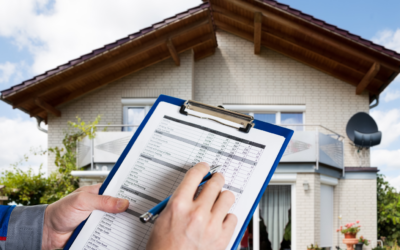How to Start Saving an Emergency Fund: A Guide for First Time Home Buyers
If you’re a first time home buyer, the prospect of buying a house can be both exciting and scary.
The excitement comes from having the opportunity to buy your own piece of real estate and make it your own. The scary part is that it’s not cheap. In fact, the average cost of buying a home in 2018 was $205,000. That’s a big chunk of change for most people. If you haven’t started saving yet, now is the time to start planning for your future as a homeowner. You see, there are many unforeseen costs that come with buying property — things like closing costs and home insurance premiums are just two examples. And if you haven’t prepared for them ahead of time, they could end up costing you tens of thousands of dollars at once.
WHY YOU SHOULD START SAVING AN EMERGENCY FUND NOW
Some people are better at saving than others. But if you want to be a homeowner, you’ll need to start doing it soon. You’ve probably heard the saying that you should have six months of your salary saved up in an emergency fund. And while that is a good idea for everyone, it’s especially important for people looking to buy property. That’s because the expenses that come with being a homeowner can really add up quickly and take you by surprise if you’re not prepared for them. For example, closing costs are usually between 2-5 percent of your purchase price and those are just one-time fees! If you don’t have an emergency cash reserve set aside from before your purchase date, these fees could end up costing tens of thousands of dollars at once. Most people who don’t prepare enough end up having to put their home on the market after just two years. Doing so means they’ll likely lose money on their investment and go through the entire process all over again just to get back where they started — plus some extra money in penalties!
HOW TO START SAVING AN EMERGENCY FUND AS A FIRST-TIME HOMEBUYER
If you’re a first-time homebuyer, you should be saving for the down payment. But that’s not all: your emergency fund will also come in handy if you have any unforeseen costs and fees. That’s why it’s important to start building an emergency fund before you buy your first house. To start saving an emergency fund as a first-time homebuyer, do these three things: – Save 10% of every paycheck (aside from your retirement contributions). – Establish a savings account for emergencies alone. – Start by putting aside $1,000 in your emergency savings account as soon as possible. An emergency fund is something you’ll never regret having when the time comes.
WHAT TO KNOW BEFORE STARTING YOUR EMERGENCY FUND
Before you start saving, it’s important to know what you’re saving for. This way, you’ll know how much money you need to save to have a certain amount saved by the time your desired purchase date arrives. You also need to think about what “emergency” means to you and determine if it would be a worthy investment of your money. For example, if the idea of not being able to afford clothes or food seems like an emergency situation, then that is something worth investing some money in. Also, don’t forget that emergencies come in different shapes and sizes. You may not be able to predict them but they’ll happen one way or another so it’s best to prepare ahead of time. It’s always better safe than sorry!
HOW TO SAVE AN EMERGENCY FUND WHEN YOU’RE BUYING A HOUSE
Saving for a house can be overwhelming, but it doesn’t have to be. With a little planning and discipline, you can save enough money to cover the costs of your house in full. Here are some steps you can take to start saving: Start by creating a budget. This will show you where your money is going every month and what you need to cut back on or avoid spending in order to save as much as possible. Create a savings plan and stick to it. Make an automatic transfer into a savings account every time you get paid or set up an auto-deposit each month so that the money is automatically deposited into your savings account. Conduct research on closing costs and other related expenses when buying a home. Figure out how much these costs will be beforehand so that you know exactly how much more you’ll need saved up before making an offer on your dream home. Contact your bank about financing options for first-time homeowners and see if they have any deals for first-time home buyers. This could mean getting better interest rates or being approved for more overall money than with traditional loans from other banks. Once you meet the initial deposit requirement, continue putting the same amount of money aside each month until the balance reaches 100%. It may take some time, but if you stick with it, eventually you’ll get there!
Conclusion
Now you’re ready to start saving an emergency fund, what next? Once you get your fund started, it’s time to make a plan to increase your savings. Aim to put aside at least 10% of your income or mortgage every month, or $1,000 if you’re a first-time homebuyer. As you buy a house, fix it up and furnish it, the cost can really add up. But with your emergency fund, you can rest easy knowing that if disaster strikes and your home is lost in a fire for example, you’ll have money to replace it. And if you stay diligent about adding to your fund, you’ll never have to worry about not being able to afford the next big thing.
Have questions about starting an emergency fund? Let us know by calling (757) 329-9854 sending us an email.



